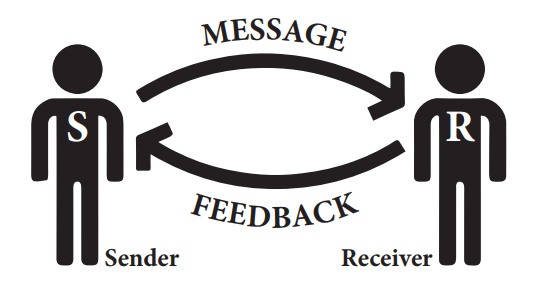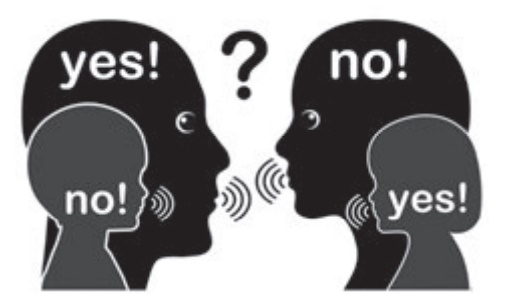Nursing Communication Skills - Effective Communication | 12th Nursing : Chapter 10 : Communication Skills
Chapter: 12th Nursing : Chapter 10 : Communication Skills
Effective Communication
EFFECTIVE
COMMUNICATION
When the nurse
communicates well, patient/other people will understand what the nurse is
trying to convey and will accept it. Let’s begin with a clear understanding of
what communication is, effective communication
•
Achieves shared understanding
•
Stimulates others to take actions to achieve goals/ideas.
•
Directs the flow of information to help people overcome barriers
to open up in discussion.
•
Channels information to encourage people/ patient to think in new
ways and to act more effectively.

Skills for Effective Communication
Express your feelings
Present yourself well
Give and receive
compliments
Learn to say “no” when
it’s necessary
To solve problems
effectively
Effective communication
is a key to getting along with others.
1. Methods of Effective Communication
The important strategies
to enhance the communication are described in the following sections.

Attention Skills
The sender needs to pay
attention to what he or she is trying to communicate, and choose the best words
and body language to communicate with. The receiver needs to pay attention to
what is being communicated by listening and watching. Attention is primarily
governed by the type of attitude sender or receiver has towards each other
during communication.
Rapport Building
Rapport building is
important in both our professional and personal lives
· Use nonthreatening and ‘safe topics’ for initial
small talk.
· Listen to what the other person is saying and
look for shared experiences or circumstances this will give you more to talk
about in the initial stages of communication.
· Try to inject an element of humour.
· Be conscious of your body language and other
nonverbal signals you are sending.
· Show some empathy.
Empathy Skills
Empathy skills are very
important in good communication. Empathy is the ability to see the world as
another person, and to share and understand another person’s feeling, need,
concern, and/or emotional state.
2. Guidelines for Effective Communication

1. Clarity of purpose
· In the first place we must make a careful
analysis of what exactly we wish to communicate.
· But any effort made in this direction proves to
be fruitful.
· As George Berneard shaw says, “The major mistake
in communication is to believe that it happens.”
2. Shared activity
· Let us forget that effective communication is
the responsibility of all persons in the organisations.
· They may be at any level managerial or
non-managerial. They are all working towards a common goal.
3. Common set of
Symbols
•
The encoding and decoding of the message should be done with
symbols that are familiar to the sender and the receiver.
•
It is an immutable condition of communication that the code or set
of symbols be mutually understood.
4. Focus the needs of the
receiver
•
Whenever we communicate we must keep in mind the needs of the
receivers and the message / information.
•
It should be our endeavour to see that whatever we communicate
should be of value to the receiver, both in the short run and in the distant
future.
•
Our awareness of the needs of the receiver will make him more
receptive.
5. Use Feedback
•
Use Feedback, exhorts Stephen Robbins, a renowned authority on
organisational behaviour. As the model of the communication process given in
the preceding chapter shows, communication is complete only when the message is
understood by the receiver.
•
We can never know whether communication / message is understood unless the sender gets
feedback.
•
Many communication problems arise because of misunderstandings and
inaccuracies.
6. Active Listening
Active or
‘participative’ listening is as important as any other element in the process of communication.
It shows, again, that
communication is a joint responsibility of both the sender and the receiver.
7. Controlling Emotions
·
Emotions play an important role in interpersonal
relationships between superiors, subordinates and colleagues in an
organisation.
·
It should therefore, be an important aim of communication to create
an environment in which people are motivated to work toward the desired goals
of the enterprise while they achieve their personal goals.
8.. Politeness
·
This leads us to the tone of voice aspect of communication.
·
Everybody knows that politeness pays and it is reflected so very
‘loudly’ both in words and actions.
9. Eliminate noise
·
Every possible effort must be made to eliminate the element of
noise that distorts communication at the transmission stage.
·
It becomes especially important in the wake of modern technological
advancement.
·
Anything going wrong with the equipment or any disturbance in
the transmission line is bound to defeat the very purpose of communication.
10. Clarify Assumptions
No effective
communication can be based on assumptions.
The sender of the
message must first clarify his assumptions and then go ahead with proper encoding of the
message.
11. Avoiding
Connotations and Ambiguities
· Semantic problems can be solved by using simple
language and avoiding connotations.
· Care must be taken to see that the receiver of
the message does not have to go beyond the text of the message.
· A sender should, therefore use denotative words
and expressions in preference to connotative ones.
· It is also necessary to avoid all ambiguity that
means using words with double meaning.
12. Socio-psychological
aspect
As communication is a
two-way process involving both the sender and the receiver, both should make
conscious efforts to understand each other’s cultural and socio-psychological
background.
· As a golden rule for effective communication one
must remember, “First understand, then be understood.”
· An effective communication is an informed
communicator.
13. Completeness
· One must also endeavour to send a complete
message, furnishing all necessary facts and figures.
· Incomplete communication annoys the receiver, as
a result they do not get proper feedback.
· The message should be so organised that the
receiver is not left in doubt about any aspect of the message.
14. Conciseness
· Completeness does not mean inclusion of
unnecessary details or diversions.
An effective
communication is concise and crisp.
· The sender should be clear headed and properly
focused in her/his vision.
15. Proper use of body
language
· Proper use of body language is of paramount
important, especially in oral communication.
· No oral communication can be successful or
effective if we do not take care of our body language.
· In the first place there must be good eye
contact with the person to whom we are communicating.
· The movement or our hands and feet must be
graceful.
· Every listener observes carefully how we walk
and how we talk.
· Our gait says a lot about us.
· A warm handshake can do wonders.
· Holding our head straight on our shoulders shows
confidence.
3. Some tips for Effective Communication

· Learn to express yourself
Help others to get to
know you better, so they will know what to expect from you. They will also help
you to get knowledge because they will give information about themselves.
· Learn good listening skills
Careful listening avoids
misunderstanding. Give your undivided attention to the patient/ speaker. If you
need more information ask questions. Be informative by trying to say something
positive even if you don’t like it.
· Learn to be assertive
Express what you have to
say with frankness without being aggressive. To be assertive means not to say
‘Yes’ when you want to say ‘No’.
Related Topics